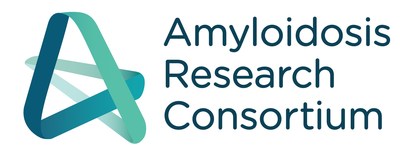The Amyloidosis Research Consortium announced the publication of Advancing Amyloidosis: A Research Roadmap; a consensus vision of research priorities aimed at increasing the pace and efficiencies of amyloidosis research most likely to improve the lives of patients.
BOSTON, March 26, 2019 /PRNewswire/ -- The Amyloidosis Research Consortium (ARC) today announced the publication of Advancing Amyloidosis: A Research Roadmap; a consensus vision of research priorities aimed at increasing the pace and efficiencies of amyloidosis research most likely to improve the lives of patients. Global leaders in amyloidosis and related fields joined forces to develop a comprehensive strategy to coordinate and prioritize research aimed at tackling the enormous challenges of the systemic amyloidosis diseases.

Systemic amyloidoses are a group of ultra-rare diseases, characterized by the accumulation of abnormal, misfolded protein (amyloid) in various organs. As the amyloid protein builds up it causes structural changes and impairs the function of the affected organ(s). These diseases are progressive, significantly impact quality of life, and if left untreated may lead to organ failure and death. Most types of amyloidosis have no approved therapies. Delays in diagnosis are frequent and can have a significant impact on a patient's life expectancy.
Progress is needed to develop a better understanding of disease physiology, and treatment targets to ensure advances in developing diagnostic tools, treatment options and ultimately find cures. Improved patient outcomes will be best achieved with research that moves forward in an efficient and planned way and with a patient-centric focus to support the diffusion of innovation into clinical practice.
"This consensus Research Strategy is intended to guide creative and systematic work undertaken to increase the knowledge base in the field of amyloidosis over the coming years," says Professor Jeffery Kelly, Department of Chemistry, The Scripps Research Institute, CA.
"Our current approach to researching and treating the amyloidosis diseases is inadequate and fragmented," said Kristen Hsu, Executive Director of Clinical Research (ARC). "We have high hopes that this research roadmap will help move collaborative efforts to the next level. We need an integrated approach to health and disease."
In 2018, ARC held a round table meeting, with international experts from academic, clinical, regulatory, patient advocacy, health policy, industry, and other key areas to identify the highest priorities and develop a research framework. A rigorous review process involving input from 78 cross-stakeholder experts representing 61 institutions from 13 countries resulted in the publication. The highest-scoring priorities are included around the following themes: basic research, translational research, improved diagnosis, clinical trial design, market access, and health systems optimization. The roadmap is intended to identify, improve, and accelerate a drug development pathway for systemic amyloidosis diseases. As knowledge and discoveries grow in this field, ARC will reconvene experts to ensure advances are reflected within this framework.
About the Amyloidosis Research Consortium
The Amyloidosis Research Consortium (ARC) is an independent 501(c)(3) nonprofit organization dedicated to accelerating the development of and access to new and innovative treatments by driving the research that will have the greatest impact on the length and the quality of life of patients with amyloidosis.
![]() View original content to download multimedia:http://www.prnewswire.com/news-releases/leading-experts-publish-a-roadmap-for-critical-areas-of-research-in-amyloidosis-300818080.html
View original content to download multimedia:http://www.prnewswire.com/news-releases/leading-experts-publish-a-roadmap-for-critical-areas-of-research-in-amyloidosis-300818080.html
SOURCE Amyloidosis Research Consortium




